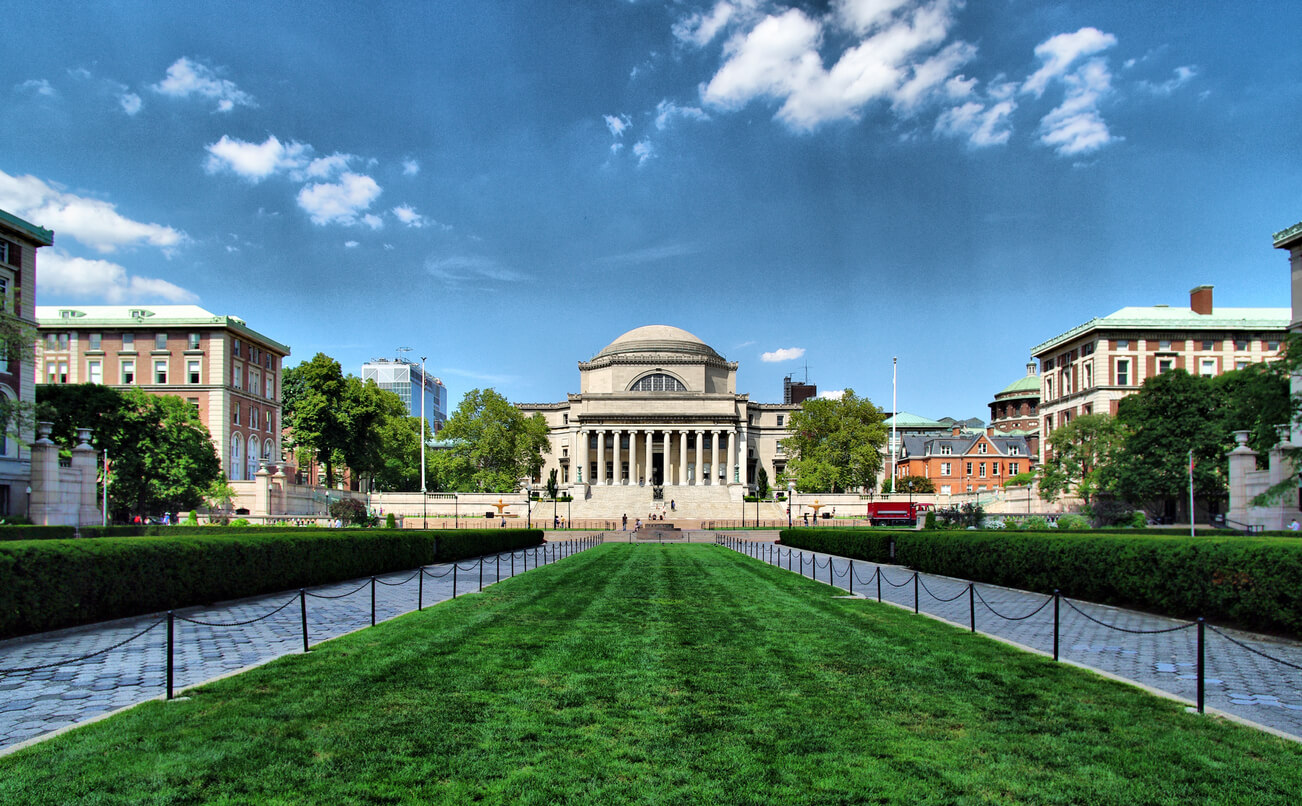Prominent professors urge Columbia University to move ahead with Tel Aviv outpost
The university’s Global Centers are research hubs and not political, argue big-name faculty in open letter

Columbia University, pictured here, plans a Tel Aviv outpost, and four professors are urging the school to proceed with the plan despite opposition from other faculty. Photo by HaizhanZheng/iStock
A group of distinguished faculty members at Columbia University are urging the school to follow through with plans to establish an outpost in Israel, despite objections from other professors critical of the Israeli government.
In an open letter obtained by the Forward, four prominent professors called establishing a Columbia Global Center “an important addition” that would benefit Columbia due to Israel’s “unusually rich infrastructure of universities and other scholarly, cultural, religious, scientific, technological, legal, and artistic resources.”
The signees are political science professor Ester Fuchs, journalism professor Nicholas Lemann and law professors David Schizer and Matthew Waxman. The letter offers the option to sign on, though the list of signees is not public.
Established in 2009, the Global Centers are research hubs aimed at promoting Columbia’s international presence. The centers do not offer for-credit classes. There are currently nine Global Centers with locations including Beijing, Rio de Janeiro, Paris and Athens.
According to the letter, a petition has circulated among Columbia faculty calling on the school to cancel the planned Tel Aviv Global Center.
In their letter, the four professors argue that the Global Centers are not officially connected to their home country’s governments and do not have a political mission, noting that three of the countries with Global Centers are rated as “not free” in the annual Freedom House Freedom in the World ratings, with another three rated “partly free.”
“One does not have to support the policies of the current government of Israel — and many of us do not — to recognize that singling out Israel in this way is unjustified,” they wrote. “Some of us agree with the thousands of protesters who have gathered to oppose proposed changes in the judiciary and others do not, but we all recognize that Israel is a country that allows free (and, indeed, passionate) debate.”
The letter is addressed to outgoing Columbia president Lee Bollinger and his planned successor Nemat Shafik, as well as provost Mary Boyce and Columbia Global executive vice president Wafaa El-Sadr.
Aside from the planned Global Center, Columbia University has significant ties to higher education in Israel. In 2019, the school announced a joint undergraduate program with Tel Aviv University.
But the school has also been home to outspoken criticism of the Israel, with 40 faculty members signing onto a 2016 petition calling on Columbia to divest from companies accused of profiting from or supporting Israel’s treatment of Palestinians. In 2002, 74 faculty members signed onto a similar petition.
“This petition, like the others, argues that Israel be put in a special category of institutional disapproval that Columbia does not apply to the dozens of other countries where its students and faculty work, including the home countries of the other global centers,” the authors of the open letter wrote.
In a statement to the Forward, a Columbia spokesperson did not confirm whether the university has plans to open a Global Center in Tel Aviv but said the school has a “wide range of partnerships with the academic community in Israel, and Israel is home to hundreds of alumni.”
“These educational and research collaborations are all consistent with Columbia’s broader mission to engage with the world. The University continues to look for opportunities to strengthen its partnerships in Israel and to pursuing new relationships.”
A message from our Publisher & CEO Rachel Fishman Feddersen

I hope you appreciated this article. Before you go, I’d like to ask you to please support the Forward’s award-winning, nonprofit journalism so that we can be prepared for whatever news 2025 brings.
At a time when other newsrooms are closing or cutting back, the Forward has removed its paywall and invested additional resources to report on the ground from Israel and around the U.S. on the impact of the war, rising antisemitism and polarized discourse.
Readers like you make it all possible. Support our work by becoming a Forward Member and connect with our journalism and your community.
— Rachel Fishman Feddersen, Publisher and CEO



























